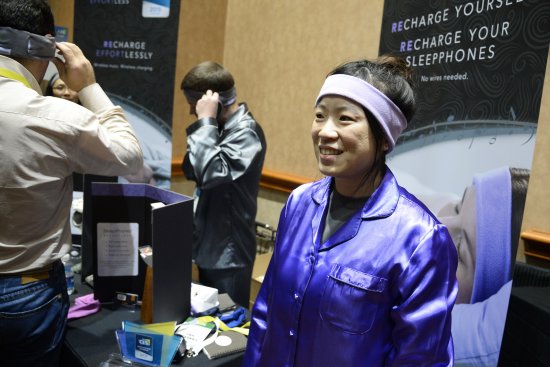
Sleep is fast becoming a high-tech affair
Sleep used to be so simple. You put your head on a pillow, closed your eyes and drifted into unconsciousness.
Today, it’s fast becoming a high-tech affair. And at this year’s International CES, there are plenty of companies that want to get into bed with you. Some want to monitor your rest patterns. Others want to help you battle sleep deprivation. And some just want to ensure the room stays comfortable as you doze.
New York’s International Gadget and Invention Show, 1958
[time-brightcove not-tgx=”true”]







Sleep technology’s modern roots reach back to the 1980s, when Bob and JoAnn Walker founded Select Comfort, with its “sleep number” adjustable mattresses. In Q3 2014, the company reported sales of $323 million, raising its full-year outlook to $1.12 per share.
Recently, dozens, if not hundreds, of devices have hit the market – and experts say that number’s only going to increase.
“As sensors become smaller, cheaper and more prevalent, it has now become feasible to measure sleep in ways that have never been possible before outside of a laboratory,” says David Cloud, CEO of the National Sleep Foundation. “We believe that the bedroom is the next frontier in home technology and the number of products designed for the bedroom will continue to grow – rapidly.”
At this year’s CES, it’s hard to miss the focus on sleep. Most new iterations of wearable fitness bans include some sort of sleep monitoring – if they didn’t already. But the innovations don’t stop there.
Top 10 Tech Product Designs of 2014









